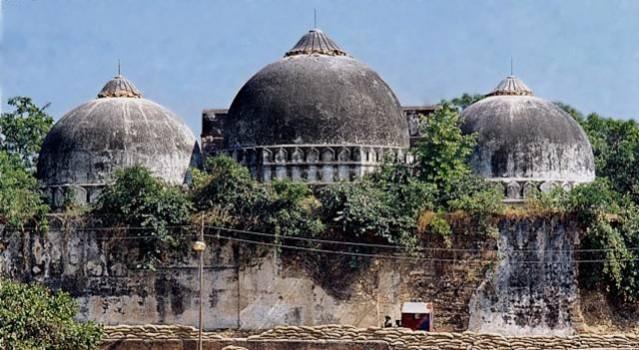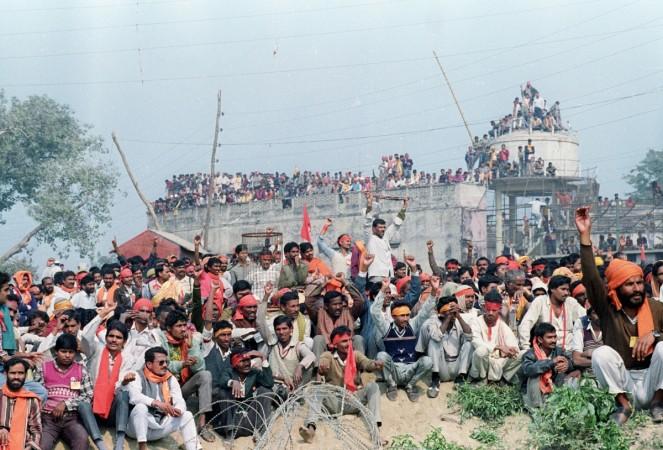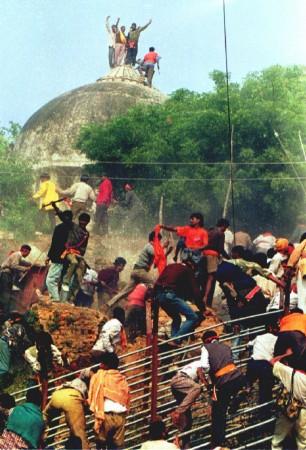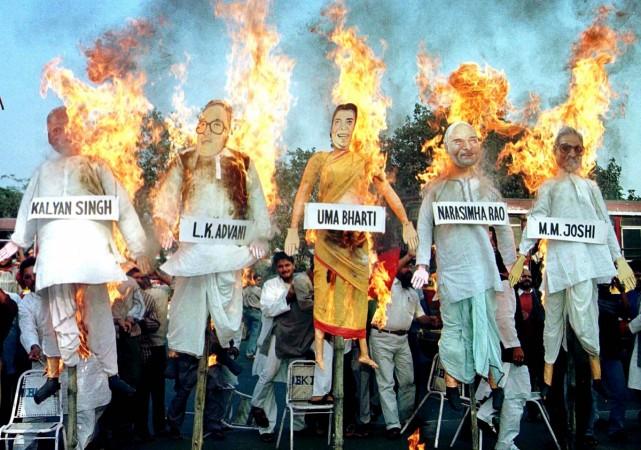
The Supreme Court on Wednesday, April 19, allowed the Central Bureau of Investigation (CBI) appeal that challenged withdrawal of conspiracy charges against several senior BJP and Sangh Parivar leaders in the Babri Masjid demolition case. LK Advani, Murli Manohar Joshi, Uma Bharti and some others would now have to face criminal conspiracy charges in the case.
Leaders who will face criminal conspiracy charges are Vinay Katiyar, Sadhvi Ritambara, Satish Pradhan and Champat Rai Bansal. The apex court, however, excluded BJP leader and current Rajasthan Governor Kalyan Singh from facing the charges. Singh enjoys constitutional immunity as Rajasthan governor and, therefore, can be tried only after he ceases to hold office, the bench said.
The SC also said that the matter would now be heard in a Lucknow court on a daily basis without granting adjournment so that the case can be wrapped up within two years. It directed the CBI to make sure that some prosecution witnesses appear in trial court for recording of testimony. The court ordered that no judge hearing the Babri Masjid demolition case will be transferred till the verdict is announced. It also directed the Lucknow trial court to begin proceedings in four weeks and also clarified that there would not be any de novo trial — a new or fresh trial by a different tribunal.
Here is a timeline of the case:
1528: The Babri Masjid was constructed by Mir Baki in Ayodhya on the orders of Mughal emperor Babar. However, the Hindu community said that the mosque was constructed on the foundations of a temple which marked the birthplace of Lord Ram in Ayodhya. This argument has continued for several years.
1885: In January, Mahant Raghubir Das filed the first case in the matter seeking permission to build a canopy on the Ramchabutra (a raised platform) outside the mosque. However, the plea was rejected by the Faizabad district court.
1949: In December, Lord Ram's idols appeared inside the mosque. It is alleged that the idols were placed there by Hindus. The move triggered widespread protests with both Hindu and the Muslim communities filing cases. Hashim Ansari filed a case on behalf of Muslims while Mahant Paramhans Ramchandra Das filed for the Hindus. The government then declared the site as a disputed one and locked its gates.
1950-61: Four separate lawsuits were filed to either perform puja to Ram Lalla (infant Ram) or hand over charge of the disputed site
1986: The Faizabad district judge ordered to remove the locks following which the site was opened for Hindu worshippers.
1989: The four lawsuits were transferred to the Allahabad High Court

1991: The Uttar Pradesh government acquired land around the structure for devotees who wish to attend the Ram Lalla darshan.
December 1992: Babri Masjid was demolished by an uncontrolled mob of karsevaks. Soon, a couple of FIRs were filed in the Babri Masjid demolition case. The FIRs were filed against the actual "demolition of the mosque by karsevaks" (Crime 197) and against 13 BJP leaders, including Advani, Joshi, Bharti, for delivering 'communal' speeches before the demolition (Crime 198).
1993: The government acquired 67 acres of land around the site and sought the apex court's opinion on whether a Hindu place of worship existed at the site before the Babri Masjid was constructed.
October 1993: The CBI filed a composite charge sheet and accused Advani and other BJP leaders of 'conspiracy' with regard to the matter.
1994: The case was sent back to the Lucknow Bench of the Allahabad HC. The four lawsuits were heard again from 1996.
May 4, 2001: Special Judge SK Shukla dropped conspiracy charges against 13 accused in the case. The accused against whom the charges were dropped included Advani and Kalyan Singh. Justice Shukla also separated Crime 197 and Crime 198.
2001: During the anniversary of the Babri Masjid demolition, the Vishwa Hindu Parishad (VHP) reiterates its commitment towards building the Ram temple at the site.
2002: In February, a train from Godhra in Gujarat was attacked claiming the lives of 58 people. The train was believed to be carrying karsevaks to Ayodhya. The attack triggered massive riots across the state killing more than 1,000 people.
In the same year, the Allahabad High Court ordered the Archaeological Survey of India (ASI) to excavate the disputed site to ascertain whether a temple had been constructed there earlier. In April, three judges of the HC commenced the hearing to determine which community the site belonged to.

March 5, 2003: The ASI began the survey to determine whether a temple existed on the site and found evidence of the presence of a temple under the mosque.
August 2003: The ASI submitted its report to the HC saying that it had found features of a 10th century temple beneath the site of the mosque. However, the All India Muslim Personal Law Board (AIMPLB) said that it would challenge the ASI report.
September 2003: A court orders seven Hindu leaders to stand trial for inciting violence and destroying the mosque. Advani, who was the deputy prime minister, does not face any charges.
2004: The Congress regains power at the Centre. A Uttar Pradesh court orders review of the previous order exonerating Advani.
May 20, 2010: Allahabad HC upholds the special court's order that had dropped conspiracy charges against Advani and others.
September 8, 2010: The Allahabad High Court announces that the verdict would be pronounced on September 24.
September 23, 2010: A plea for an out-of-court settlement reached Supreme Court. The court said that it would hear it again on September 28.
September 28: The SC rejected the petition for deferment and ordered the Allahabad High court to deliver the judgement. The High Court decided to announce the verdict on September 30.
September 30, 2010: Allahabad HC gave two-thirds of the Ayodhya site to the Hindu parties and one-third to the Muslim Waqf Board. It ordered for a three-way division of the disputed site. The site would be divided between the Sunni Waqf Board, the Nirmohi Akhara and the party for 'Ram Lalla'.

February, 2011: The CBI moved SC saying that the demolition bid was "a concerted conspiracy."
May 9, 2011: SC stayed the Allahabad HC verdict on the dispute
February 26, 2016: The Supreme Court allowed BJP leader Subramanian Swamy to intervene in pending matters related to the dispute with his plea seeking construction of Ram temple at the site of the demolished disputed structure.
March 6, 2017: SC indicated that it may revive criminal conspiracy charges against Advani, Joshi and other leaders and also ordered a joint trial of crimes 197 and 198.
April 6, 2017: CBI urged the apex court to revive the Babri Masjid demolition case against 13 BJP leaders, including Advani, Joshi, Bharti and others
April 20, 2017: SC rules that Advani, Bharti, Joshi and the others would face criminal conspiracy charges. It exempted Kalyan Singh from facing charges since he enjoys constitutional immunity as he is the Governor of Rajasthan. He can only face charges if he denounces his post.

















